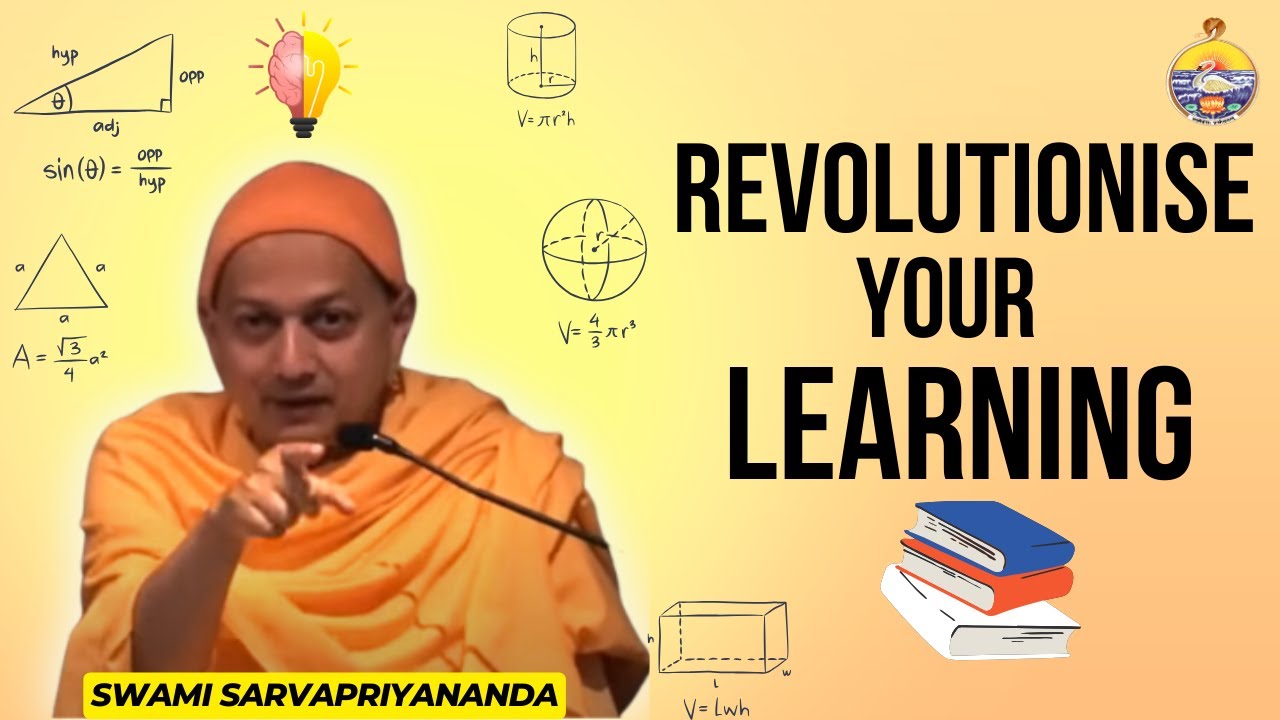SQ3R - How to study effectively (evidence based study tips)
Summary
TLDRThe updated SQ3R is a modernized study method designed to improve comprehension and retention. It retains the 'Survey' step, where students skim material, but introduces new strategies for the other steps. Instead of forming questions from the material, students should use practice questions or past exams. They then rephrase the information in their own words to deepen understanding. The next step is recalling the answers without looking, followed by spaced repetition to reinforce memory. This revised method integrates active recall, spaced repetition, and the Feynman technique for more effective studying and better long-term retention.
Takeaways
- 😀 SQ3R is a popular study strategy introduced in the 1940s, but it is outdated and less effective for modern students.
- 😀 Research has shown that better study techniques exist, such as active recall, spaced repetition, and the Feynman technique.
- 😀 The new SQ3R strategy includes updated methods that incorporate these advanced techniques for better retention and understanding.
- 😀 The 'S' in the new SQ3R remains the same: 'Survey'—quickly scan the material for key terms, headings, and diagrams.
- 😀 For 'Q' (Question), the strategy recommends using practice questions from textbooks or old exams, or asking the teacher directly.
- 😀 The new 'Q' helps guide your reading by focusing on finding answers to specific questions, improving purposeful studying.
- 😀 The first 'R' in the updated SQ3R is 'Rephrase'—rephrase the material in your own words to better understand it.
- 😀 Rephrasing also helps identify areas where you might not fully understand the material, improving overall comprehension.
- 😀 The second 'R' is 'Recall'—actively recalling information from memory instead of just reviewing notes, improving long-term retention.
- 😀 'Repetition' is the final 'R'—practice spaced repetition by recalling material at increasing intervals for better memory consolidation.
- 😀 Using digital flashcards for recall and spaced repetition can enhance the effectiveness of the study process, ensuring efficient learning.
Q & A
What is the SQ3R study method, and how is it used?
-SQ3R is a popular study method that stands for Survey, Question, Read, Recite, and Review. It helps students read and study material effectively by guiding them to survey the text, create questions, read for answers, recite in their own words, and review their notes before tests.
Why is the original SQ3R method considered outdated?
-The original SQ3R method was introduced in the 1940s and is considered outdated because more recent research has identified better study strategies, such as active recall, spaced repetition, and the Feynman technique, which are more effective for learning and memory retention.
What is the new version of SQ3R, and what changes were made?
-The updated SQ3R method keeps the 'S' for Survey but modifies the other parts. The 'Q' now involves using practice questions from the material, the 'Rs' are changed to Rephrase, Recall, and Repetition, which incorporate better learning strategies like active recall and spaced repetition.
What does the 'Survey' step involve in the new SQ3R?
-In the new SQ3R, the 'Survey' step involves quickly flipping through the material, reviewing headings, key terms, bold words, and any diagrams or pictures to get an overview of the content and understand how it's organized.
How does the 'Question' step differ in the new SQ3R compared to the old method?
-Instead of forming questions from the text, the new SQ3R suggests using questions already present in the textbook (like practice or review questions), or asking the teacher for exam-related questions. This helps focus reading on finding answers, ensuring active engagement with the material.
What is the importance of the 'Rephrase' step in the new SQ3R?
-The 'Rephrase' step helps ensure understanding by encouraging students to explain the material in their own words. If a student struggles to explain it simply, it indicates they don't fully understand the concept yet.
How does 'Recall' help in the new SQ3R method?
-'Recall' is crucial for memory retention, as it involves actively trying to remember the answers to questions without looking at notes. This mimics the test environment and strengthens long-term memory more effectively than passive review.
What role does 'Repetition' play in the updated SQ3R method?
-'Repetition' in the new SQ3R refers to spaced repetition, where students review and recall the material at increasing intervals (e.g., one day, four days, one week later). This technique helps reinforce memory and ensures better retention of information over time.
Why is it recommended to use digital flashcards for recall?
-Digital flashcards are recommended for recall because they are more convenient and allow for easy organization and repetition of material. They also make it easier to track progress and adjust study schedules based on spaced repetition principles.
How did the updated SQ3R method help in medical school, according to the video?
-The updated SQ3R method was successful in medical school as it incorporates strategies like active recall, spaced repetition, and the Feynman technique, which are essential for mastering complex material and retaining information in high-stakes academic environments.
Outlines

このセクションは有料ユーザー限定です。 アクセスするには、アップグレードをお願いします。
今すぐアップグレードMindmap

このセクションは有料ユーザー限定です。 アクセスするには、アップグレードをお願いします。
今すぐアップグレードKeywords

このセクションは有料ユーザー限定です。 アクセスするには、アップグレードをお願いします。
今すぐアップグレードHighlights

このセクションは有料ユーザー限定です。 アクセスするには、アップグレードをお願いします。
今すぐアップグレードTranscripts

このセクションは有料ユーザー限定です。 アクセスするには、アップグレードをお願いします。
今すぐアップグレード5.0 / 5 (0 votes)






